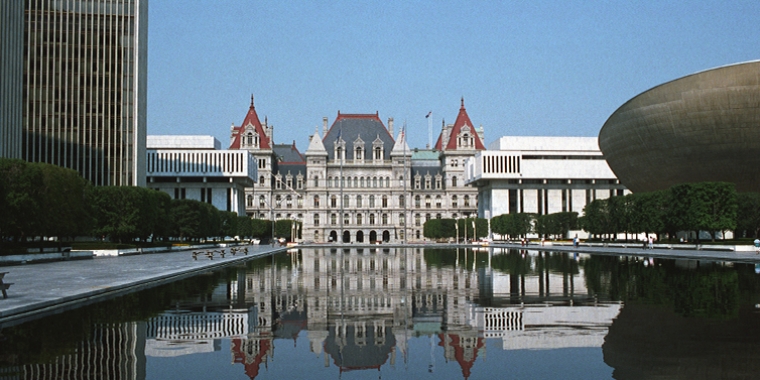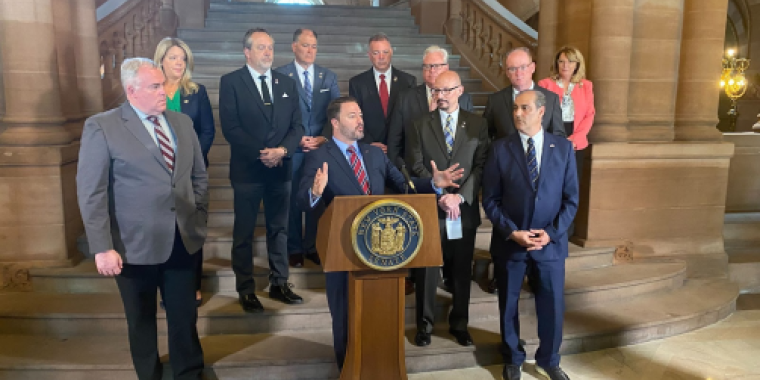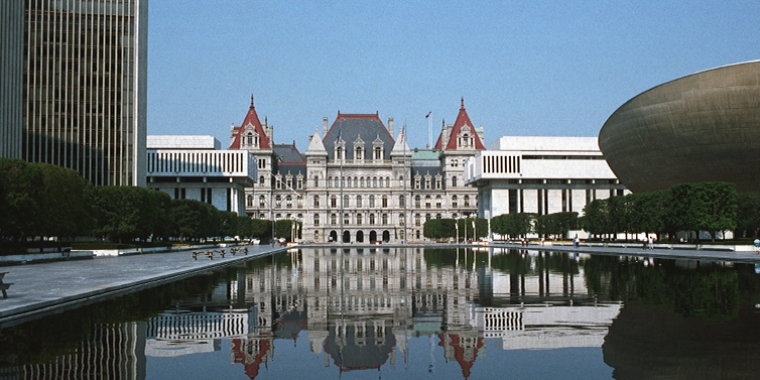
Senator O'Mara's weekly column 'From the Capitol' -- for the week of July 22, 2024 -- 'Affordability still an unsettled concern for New Yorkers'
July 22, 2024

Senator O'Mara offers his weekly perspective on many of the key challenges and issues facing the Legislature.
Senator O'Mara offers his weekly perspective on many of the key challenges and issues facing the Legislature, as well as on legislative actions, local initiatives, state programs and policies, and more. Stop back every Monday for Senator O'Mara's latest column...
This week, "Affordability still an unsettled concern New Yorkers"
Not that we needed another poll to tell us that New York State is getting increasingly more unaffordable, but recent statewide polling from the Siena Research Institute offers a telling look at the state of affordability in New York.
It's a concern, of course, that many of my legislative colleagues and I have steadfastly pinpointed throughout the past few years as New Yorkers have consistently let it be known that the prohibitive cost of living in this state is driving them away.
The truth remains that citizens across the Southern Tier and Finger Lakes regions I represent, and statewide, are worried about making ends meet. They see this state becoming less affordable, less free, less economically competitive, less responsible, and far less hopeful for the future. While many Albany Democrats may acknowledge that New York State has an affordability crisis causing the exodus of so many of our citizens to more affordable states -- remember that we lead America in population loss -- they nevertheless remain committed to out-of-control spending, high taxes, exorbitant costs for everything under the sun, and burdensome regulations and unfunded state mandates.
New York State's current direction is not sustainable. While excessive costs cannot be brought under control solely through actions out of Albany, state government can and should be taking every step possible to ease the burden.
Keep in mind that fiscal watchdogs have already projected significant state budget deficits throughout the foreseeable future and, inevitability, footing the bill of budget deficits always falls on taxpayers.
We need to rescue New York and that can begin by restoring the right priorities to turn things around, rebuild stronger and safer communities, and work toward a more responsible and sustainable future for middle-class communities, families, workers, businesses, industries, and taxpayers.
From the latest Siena poll:
--Seventy-five percent of state residents report that the amount of money they spend on groceries is having either a very serious or somewhat serious impact on their finances.
--Seven in ten New Yorkers say that housing costs are having a very serious or somewhat serious impact on their financial condition.
--Upwards of sixty percent of state residents say that their utility costs are having at least a somewhat serious impact on their finances. And that other monthly expenses including the cost of cell phones and entertainment services including internet and cable are having a very or somewhat serious impact on their financial condition.
It simply reaffirms the need for a legislative agenda pushed by our Senate Republican Conference throughout 2024, "New Hope for the Empire State," to focus on policies being ignored in Albany that prioritize economic growth and job creation, tax relief and regulatory reform, and many other affordability initiatives.
The "New Hope for New York" agenda is a comprehensive plan to ease the financial burden on middle-class families and small business owners, lower costs and improve affordability, and restore the quality of life in communities statewide. The plan calls for numerous actions including:
--enacting a state spending cap;
--rejecting and eliminating tax increases and unfunded state mandates on local governments and school districts;
--providing across-the-board tax relief;
--rejecting extreme, mandated climate proposals;
--increasing affordable housing options;
--making child care more accessible and affordable;
--improving the state's business climate by protecting small businesses and farms by reducing regulations, and lowering taxes and unfair costs.
We face an affordability crisis. We face a border crisis. Law and order remains in free fall. New York, on its current path, fails to produce hope for a long-term, sustainable future for communities and families, businesses and industries, or taxpayers and workers.
###
Share this Article or Press Release
Newsroom
Go to Newsroom


